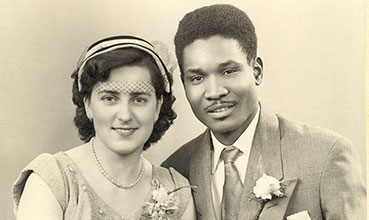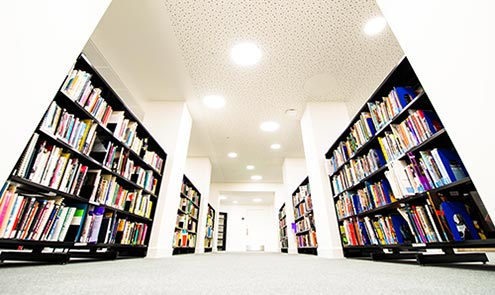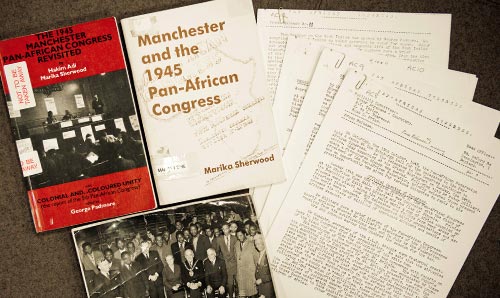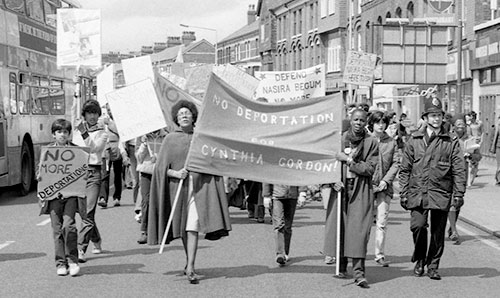Oral histories
Oral histories are an important feature of our collection. Oral history is the process of recording and preserving people’s memories, opinions and unique experiences.

It records social history and is especially valuable in preserving the voices of those who have traditionally been hidden from history.
Many mainstream archives contain limited oral histories about people from global majority, migrant or refugee backgrounds, which can be frustrating for those wanting to see their histories and experiences reflected, as well as for those researching diverse histories and heritage. Our oral histories are gathered from entirely from refugee, migrant and global majority communities as well as people working and campaigning alongside them, and therefore represents a unique collection with rich primary source materials for researchers.
Education Trust
Many of the oral histories in our collection have been co-created by our Education Trust with communities. This means that oral histories recordings were often planned and recorded by members of Greater Manchester’s global majority, migrant and refugee communities, bringing a level of insight and lived experience often missing elsewhere.
You can read more about the projects on the Trust website:
We also hold oral history collections that have been donated.
Access
If you wish to read transcripts and/or summaries of oral history interviews, contact a member of staff at our enquiry desk or email us. Some original recordings can be listened to on request.
For more information about how to access oral histories please visit our 'How to use the library' webpage:
You can listen to excerpts of some of our Oral History recordings on the Ahmed Iqbal Ullah RACE Centre and Education Trust's Soundcloud channel.
- Listen to Oral History clips on Soundcloud
Oral history interviews
Here are the selection of the oral history collections available at the Ahmed Iqbal Ullah RACE Centre.
Roots Family History Project
Life story interviews carried out with members of the Manchester African and Caribbean communities in the 1980s and 1990s. Audio and transcript available from 26 interviews. Donated by Maria Noble and Elouise Edwards.
Exploring Our Roots
74 life story interviews carried out by young people, as part of our own project. This collection includes transcripts and audio and video recordings with people of Sikh, Bangladeshi, Pakistani, Indian, Chinese, West African and Caribbean heritage, all living in Manchester. There is also a large collection of donated photographs.
Pan-African Congress 50 Years On
Six audio interviews and transcripts created in 1995 to mark the 50th anniversary of the Pan African Congress held in Manchester in 1945. The interviews are with those who were living in Manchester in 1945 and some who attended the Congress, including Sam Nelson and Alfred Gaisie.
Ann Adeyemi
Life story and reminiscences of a Manchester woman of Irish and Liberian heritage. Ann's mixed-race mother was born in Salford in 1920. Ann has donated family photographs and other ephemera, as well as her interview.
Listen to audio clips of an oral history interview with Ann Adeyemi on Soundcloud.
Yemeni Roots, Salford Lives
20 audio interviews (currently unavailable), with written summaries, recorded with members of the Salford Yemeni community in our own project, with photographs.
Voices of Kosovo in Manchester
Manchester Aid to Kosovo (MaK) produced the VOKIM ‘Voices of Kosovo in Manchester’ project between September 2014 and March 2016. The project recorded and preserved the story of the Kosovar community in Manchester. Many arrived as refugees in 1999, evacuated to the North West in part of a global humanitarian response to ethnic cleansing in the Balkans. Their voices have been captured alongside a selection of the many people who responded to their struggle.
Ziwo: Tracing the heritage of Zimbabweans living in Greater Manchester
The Zimbabwe Women's Organisation (ZIWO) is a constituted voluntary group established by five Zimbabwean women in 2006. In 2018 ZIWO received a National Lottery Heritage Fund grant to undertake the Tracing the heritage of Zimbabweans living in Greater Manchester project. The aim of the project was to demonstrate the diversity of black minority ethnic communities in Greater Manchester and the richness and uniqueness of the Zimbabwean culture. The project collected life stories which covered themes including childhood, their migration journey to the UK, Zimbabwean traditions and totems as well as hopes and fears for the future.
Memories of Partition
Memories of Partition was an 18-month project, run by Manchester Museum, which aimed to capture the collective memory of those affected by the 1947 Partition of India into independent nations of India and Pakistan (and subsequently Bangladesh in 1971). At the heart of Memories of Partition was a community-based oral history programme, designed to capture, record and interpret some of the many hidden, personal experiences relating to Partition. The project assumed a primarily faithbased approach to community engagement, with the aim that balanced representation was afforded to Muslim, Hindu and Sikh communities at all times.



